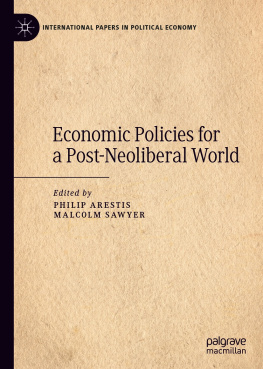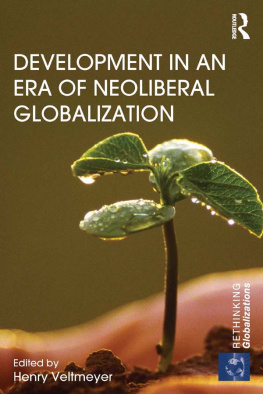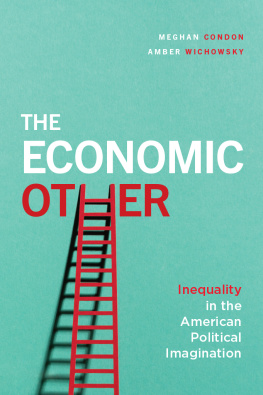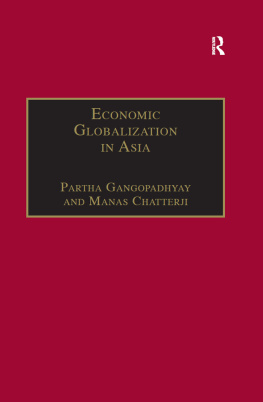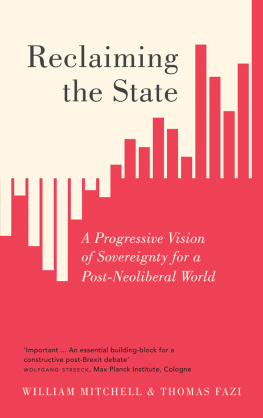Feminists Rethink the Neoliberal State
Feminists Rethink the Neoliberal State
Inequality, Exclusion, and Change
Edited by Leela Fernandes

NEW YORK UNIVERSITY PRESS
New York
NEW YORK UNIVERSITY PRESS
New York
www.nyupress.org
2018 by New York University
All rights reserved
References to Internet websites (URLs) were accurate at the time of writing. Neither the author nor New York University Press is responsible for URLs that may have expired or changed since the manuscript was prepared.
Library of Congress Cataloging-in-Publication Data
Names: Fernandes, Leela, editor.
Title: Feminists rethink the neoliberal state : inequality, exclusion, and change / edited by Leela Fernandes.
Description: New York : New York University Press, [2017] | Includes bibliographical references and index.
Identifiers: LCCN 2017012918| ISBN 9781479800155 (cl : alk. paper) | ISBN 9781479895304 (pb : alk. paper)
Subjects: LCSH: Womens rightsHistory21st century. | WomenLegal status, laws, etc. | WomenSocial conditions21st century.
Classification: LCC HQ1155 .F467 2017 | DDC 305.42009/05dc23
LC record available at https://lccn.loc.gov/2017012918
New York University Press books are printed on acid-free paper, and their binding materials are chosen for strength and durability. We strive to use environmentally responsible suppliers and materials to the greatest extent possible in publishing our books.
Manufactured in the United States of America
10 9 8 7 6 5 4 3 2 1
Also available as an ebook
Contents
Leela Fernandes
Nancy A. Naples
Ujju Aggarwal
Lamia Karim
Dolly Daftary
Christina Heatherton
Amy Lind
Leela Fernandes
There is no issue that is more central in the twenty-first century than the growing forms of socioeconomic inequality and exclusion that have become entrenched across the world. Debates on globalization, free trade, and economic development have been shaping political dynamics within and across nations. These debates often have been linked either implicitly or explicitly to particular sets of economic policies (often identified with market liberalization, financial restructuring, and privatization) that have come to be encapsulated by the term neoliberalism. The idea of neoliberalism indeed captures very real processesand sets of policiesthat have become a dominant model for national and transnational economic arrangements. However, neoliberalism has also too easily become a self-evident catch-all phrase that serves as an explanatory device for the inequalities, exclusions, and forms of social change that have been unfolding in comparative contexts. I have been struck over the years by the ways in which the term neoliberalism increasingly has become a rhetorical deviceparticularly in intellectual (and often but not exclusively interdisciplinary) arenas in the United States. Such rhetoric is often couched in universal, ahistorical, and transnational claims that do not account for differences between nations or the interrelationship between the effects of recent policies of liberalization and earlier political economic models of development. Narratives centered on privatization and market rationalities, for instance, are often depicted as key drivers of socioeconomic, political, and cultural change. This volume is an effort to deepen interdisciplinary understandings of how policies of economic liberalization shape and produce various forms of inequality in comparative contexts.
The book brings together feminist scholars who have been working on such questions in a range of contexts in order to delineate what is distinctive about the neoliberal state (and the production of inequality) and what is linked to longer, complex processes that have produced long-standing forms of inequalities within and between nations. The feminist lens of the volume, in particular, seeks to bring a textured understanding of inequality to the fore (through a focus on the linkages between interrelated forms of inequality such as gender, race, sexuality, and class). Such a layered analysis is still too often missing from dominant social scientific understandings of structures of political economy. However, this comparative, textured approach does not adopt a checklist model that reduces the relations between inequalities to a presumed static list of identities and geographical locations that must be covered. Rather, the volume brings a theoretical lens that seeks to deepen our understanding of the role of the state in shaping policies and processes that reproduce inequality. Such an understanding of the state is critical, as the volume seeks to show, for the development of adequate responses that can redress inequality and produce meaningful social and economic change.
At the time this volume goes to publication, the United States has undergone a significant political shift with the election of Donald Trump. Many of the issues that played out in the campaigndebates over trade and protectionism, the rise of populist anger and the continued politicization of raceare key themes that essays in this volume take up. However, the framework of this volume also cautions against reading broad global political and economic trends through a singular event or through a purely U.S.-centric lens. What seems initially like significant potential shifts in the new administrations approach to global trade are also accompanied by strong indications of pro-corporate policies on regulation and taxation. The brand of racialized populist nationalism evident in the 2016 U.S. election did not begin with the U.S. election. It was evident in the 2014 religious nationalist and populist election that brought Prime Minister Narendra Modi to power in India. Modis campaign promised state action for social groups left out of growth even as it sought to continue Indias policies of economic liberalization. Similar trends are evident in Europe. Such parallels and divergences are fundamentally connected to the approach of this volume, which seeks to unpack a unitary model of neoliberalism and pays sustained attention to the ways in which transnational political economic processes shape and are shaped by the situated dynamics and contexts of nation-states. This includes unsettling easy invocations of transnationalism that fail to grasp both the sustained historical power of nationalism and the importance of state actions.
The volume was initially framed by a productive set of intellectual conversations at a symposium that I organized at the University of Michigan in 2014. I am grateful for generous funding from the Institute for Research on Women and Gender as well as numerous departments and centers that co-sponsored the event. Heidi Bennett provided tremendous administrative support for the event that was crucial to its success. Thanks also go to Saisha Nanduri for her thorough research assistance. A distinctive feature of the initial symposium and this volume is that they both sought to bring together scholars working in Western and non-Western contexts. In particular, the symposium brought together scholars from a wide range of disciplines who have been actively engaged with interdisciplinary work in both international area studies as well as American studies. What emerged was a productive set of discussions that sought to open up intellectual arenas of inquiry and sparked productive conversations and comparative connections. This volume is produced with the hope of continuing such conversations with scholars working in comparative contexts.
Leela Fernandes
Conceptualizing the Post-Liberalization State


